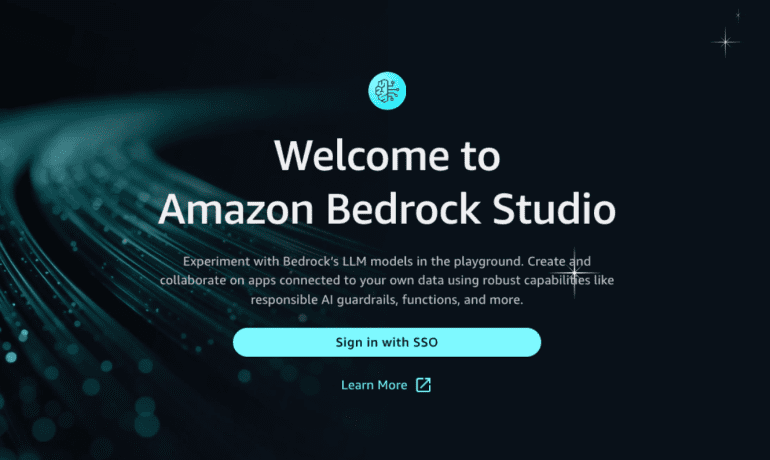- Amazon introduces Bedrock Studio, a tool for generative AI app development.
- Bedrock Studio facilitates model experimentation, collaboration, and app creation.
- It provides a guided environment for assessing, refining, and sharing AI models.
- Developers can test different configurations and integrate external data sources.
- Collaborative features include single sign-on credentials for enterprise use.
- AWS resources are automatically deployed within the authenticated account.
- Bedrock Studio consolidates existing AWS tools with governance features.
- Amazon competes with Google Cloud and Microsoft Azure in the generative AI market.
- AWS’ generative AI services, including Bedrock, show significant financial success.
Main AI News:
Amazon unveils Bedrock Studio, a new tool geared towards facilitating generative AI model experimentation, collaboration, and the creation of generative AI-powered applications within organizations.
Launching today in public preview, Bedrock Studio, a component of Amazon’s generative AI platform, Bedrock, offers a web-based environment described by Amazon as a “rapid prototyping environment” for generative AI, as outlined in a recent blog post.
Bedrock Studio provides developers with a guided experience, leading them through the process of assessing, refining, and sharing generative AI models from various partners such as Anthropic, Cohere, Mistral, Meta, and others associated with Bedrock. The platform also enables developers to test different model configurations, incorporate external data sources and APIs, and establish model guardrails.
Furthermore, Bedrock Studio facilitates collaborative efforts among team members by offering tools for creating and enhancing generative AI applications, including support for single sign-on credentials tailored for enterprise use.
According to Amazon, Bedrock Studio seamlessly deploys the necessary Amazon Web Services (AWS) resources upon developers’ requests, ensuring that applications and data remain securely within the authenticated AWS account.
Antje Barth, Amazon’s principal developer advocate, elaborates on the deployment process in the blog post, stating, “When you create applications in Amazon Bedrock Studio, the corresponding managed resources such as knowledge bases, agents and [more] are automatically deployed in your AWS account. You can use the Amazon Bedrock API to access those resources in downstream applications.”
Rather than reinventing the wheel, Bedrock Studio consolidates existing AWS tools while incorporating features for corporate governance and compliance, positioning itself as Amazon’s premier platform for generative AI app development.
While facing competition from similar platforms offered by Google Cloud, Microsoft Azure, and others, Amazon remains confident in Bedrock’s potential. In a recent earnings report, Amazon CEO Andy Jassy highlighted the success of AWS’ generative AI-related services, including Bedrock, which collectively achieved a “multi-billion dollar run rate.”
Conclusion:
Amazon’s launch of Bedrock Studio signifies its strategic move to streamline generative AI app development. By consolidating existing tools and offering collaborative features, Amazon aims to strengthen its position in the market alongside competitors like Google Cloud and Microsoft Azure. The success of AWS’ generative AI services, including Bedrock, suggests a promising future for Amazon in this rapidly evolving sector.

